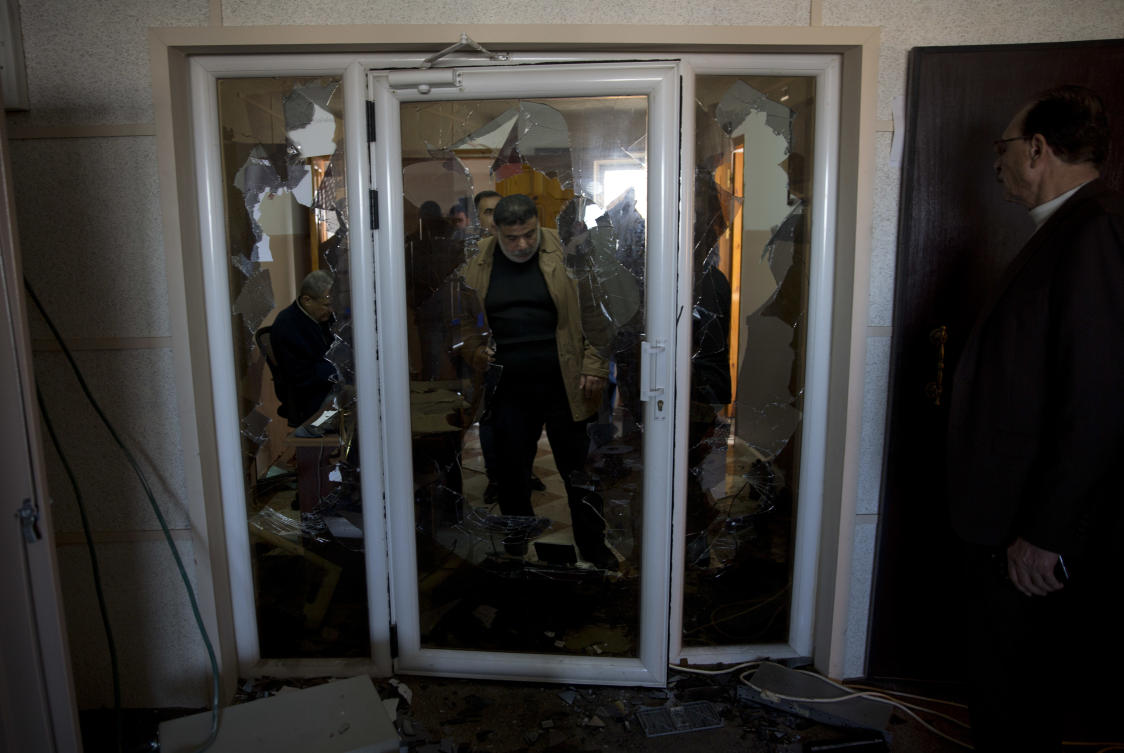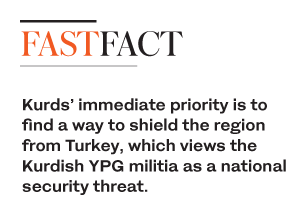Idlib clashes stir debate over de-escalation deal
ANKARA: Escalating clashes between Hayat Tahrir al-Sham (HTS) and Ankara-backed National Front for Liberation (NFL) in Syria’s northwestern Idlib province have raised concerns about a deal to set up de-escalation zones in the region.
The deal was brokered between Turkey, Russia and Iran in September 2017.
The Al-Qaeda linked HTS, trying to control key roads in the province, has increased its activity in southern Idlib and the city of Hama and captured some villages from Turkish-backed militant groups.
The clashes led to the death of more than a 100 civilians and fighters, the UK-based Syrian Observatory for Human Rights reported.
A separate deal, signed last September in the Black Sea resort of Sochi, said the areas where the clashes took place were due to be cleared of heavy weaponry. The deal also required Russia to ensure the status quo in Idlib and avoid military attacks in the region.
But this deal is not yet fully implemented as Russia launched an airstrike in southern Idlib, resulting in significant damage.
In a joint declaration published Friday, local councils in Syria called for the establishment of a humanitarian corridor as a precaution in case the clashes spread to urban areas. The province is home to about 3 million people.
Turkey has 12 observation posts in the region and has raised the alert level as some of the posts, manned by Turkish troops, are close to areas where there has been fighting.
HTS, which dominates more than half the region, remains the most powerful rebel alliance in Idlib and is considered a terrorist group by Ankara.
Sinan Hatahet, an Istanbul-based expert on Syria, said clashes were expected because HTS has been trying to consolidate its power over Idlib.
“This is a major point of disagreement between Russia, Iran on the one hand, and Turkey on the other. Moscow and Tehran want Turkey to be more assertive to counter HTS in Idlib, but Turkey is not willing to spend any finances and resources for such a fight that is very complicated,” he told Arab News.
Ankara had it made it clear that its strategic interest lay in northern Aleppo and some areas in northern Idlib, he added, but that the de-escalation deal was not currently under threat.
“The Syrian regime might exploit the chaos to attack certain areas to grab land around the demilitarized zone. But the de-escalation zone will remain even if the regime attacks, because the agreement is between Turkey and Russia and Turkey hasn’t really intervened.
“It is an infighting spiral that will always keep on going unless Turkey gets guarantees that it stays definitely in Idlib. But even then Turkey’s engagement in Idlib is only to prevent major refugee spillover,” he added.
Dr. Kerim Has, a Russia analyst, said Moscow was sticking to its position of eliminating armed groups in the region with the help of the Turkish army and its proxies.
“I think it’s not the end of the de-escalation agreement yet. But it demonstrates on what the last Turkish-Russian negotiations with high level officials were principally locked in Moscow, and what Russia prioritizes in Syria for now, namely the Idlib dossier, on the background of US withdrawal from Syria,” he told Arab News.
“Besides, the Russian side is becoming more inclined to functionalize the Idlib deadlock as a Damocles’ sword on Turkey’s own security during the bargaining process with Ankara on the east of the Euphrates.”
Turkey was determined to carry out a new large-scale military operation in northeast Syria, he said, and Russia was reminding it of the responsibility its leaders had taken for the “gigantic powder keg” Idlib in the Sochi deal.
Has said Moscow would deploy this tactic for a while, at least until negotiations between Russia and the US and talks between Damascus and the People’s Democratic Party (PYD) and its armed wing, the People’s Protection Unit (YPG).
“Russia’s possible ‘green light’ to the Turkish side for a new military operation in northeast Syria is directly and substantially related to the results of these negotiations,” Has added.
The increasing clashes in Idlib were weakening Turkey’s position in terms of its negotiations with Russia, and also undermining its ambitious military offensive plans ahead of a high-level US visit to Ankara next week, he added.
Big hitters John Bolton, Gen. Joseph F. Dunford Jr., and James Jeffrey are due to meet their Turkish counterparts to discuss the latest developments in Syria.
“According to official statements, the Trump administration is aiming to keep the US’ Kurdish allies, including YPG forces, which are the number one enemy of Ankara, in a ‘safe basin’ in Syria,” Has said.
It would be harder for Turkey to realize its claims, he added, as requests would increasingly reflect US plans in Syria.

US warns Syria over chemical weapons ahead of troops withdrawalUS gives no timeline for Syria withdrawal as fighting continues




 Their immediate priority is to find a way to shield the region from Turkey, which views the Kurdish YPG militia as a national security threat.
Their immediate priority is to find a way to shield the region from Turkey, which views the Kurdish YPG militia as a national security threat.